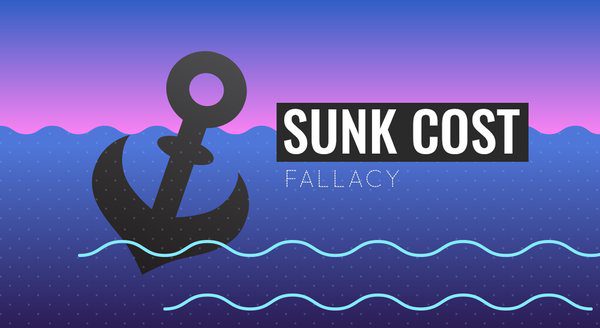Recently I enrolled in a Bootcamp, which I had thought would help me achieve one of my career goals. Few weeks into the program and after I had paid a large sum of money, which was non-refundable, I realized It was not going to help achieve the career goal that I had intended and coupled with my hectic work schedule. It was not easy pulling the plug on the program, even though I had invested a large chunk of money, but I had to for the sake of my sanity & save money, time, and energy.
In retrospect, it was not a wrong move to leave the program as I was able to use that time for some other activities such as writing some IT certifications. I had to think of the trade-off I would be making vis a vis my career goals.
The Sunk Cost Fallacy is the tendency to continue to sink money, time, or effort into an activity/project we know is not going to give us our expected result. We continue these resources imply because we have already incurred a cost (sunk), which cannot be recouped. We place more value on the project based on how much we have already invested rather than the real present value.
The sunk cost is very pervasive in every area of our lives as we continue to spend money, time and effort in abusive relationships, loss generating business, viewing boring movies or sports games, nonproductive dating/marriage, or even schooling and career choice. There are lots of examples of the sunk cost in the business world such as Concorde, Google Glass, Microsoft Zune among others.
Here are some examples of the sunk cost fallacy:
